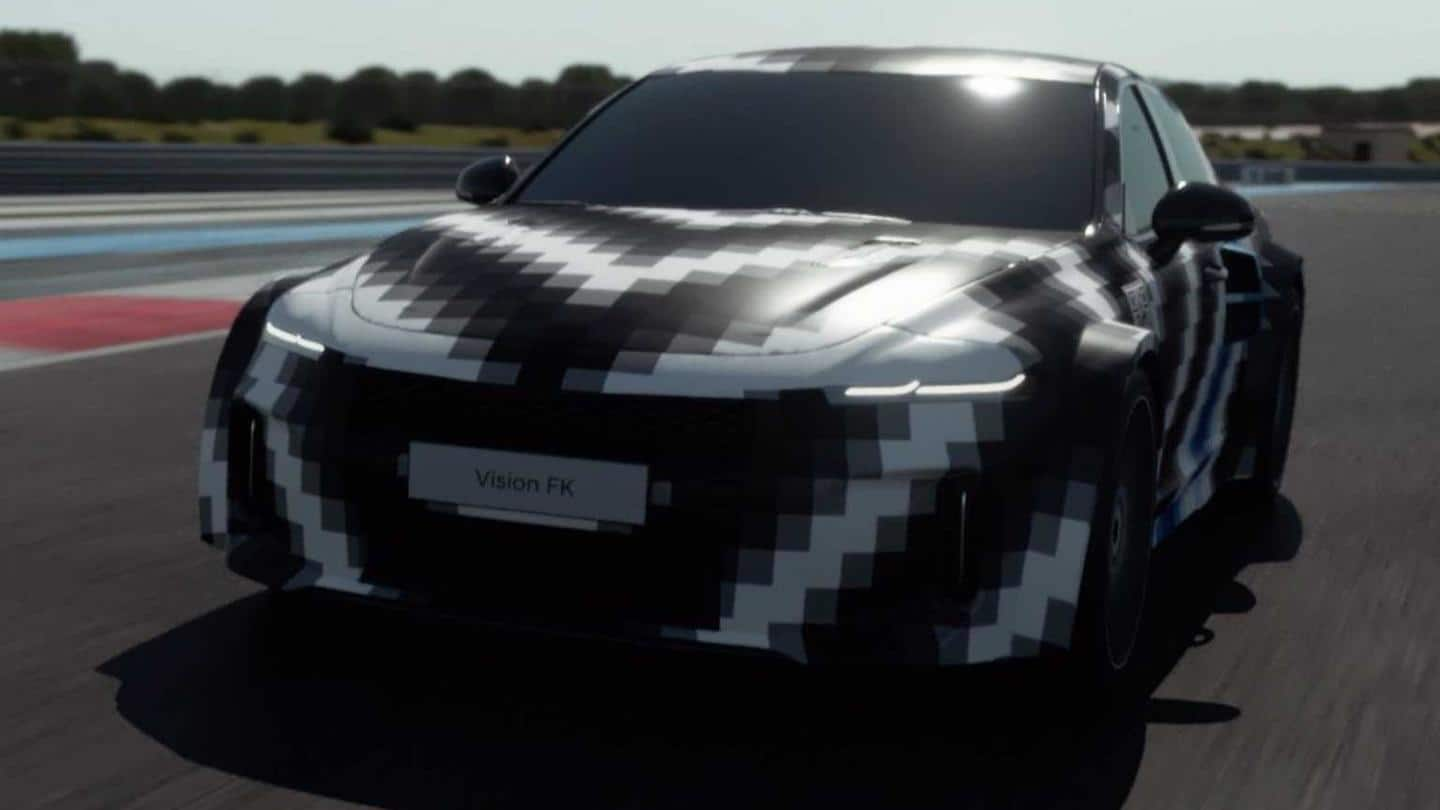
Hyundai Vision FK hydrogen concept, with 600km of range, revealed
What's the story
At the "Hydrogen Wave" virtual event, Hyundai has announced its strategy to popularize the usage of hydrogen as a sustainable energy source for automobiles in the next 20 years. The brand has also showcased its Vision FK concept car. The 2-door model is fueled by a hydrogen powertrain and sprints from 0-100km/h in less than four seconds. Here are more details.
Exteriors
The car will have sleek headlights and multi-spoke wheels
The Hyundai Vision FK shown at the event was wrapped under camouflage. However, we can make out that it will have a sloping roofline, a flat bonnet, sleek headlights, and a wide air dam. On the sides, it will be flanked by two doors, B-pillars, indicator-mounted ORVMs, flared wheel arches, and multi-spoke wheels. The rear section should have wrap-around lights.
Information
It is fueled by a 690hp hydrogen powertrain
The Hyundai Vision FK runs on a 690hp hydrogen powertrain that pairs a fuel cell energy converter with a rear-wheel-drive system. The car delivers a range of over 600km per tank of hydrogen and can accelerate from 0-100km/h in less than four seconds.
Interiors
It will gets two seats and a multifunctional steering wheel
The Hyundai Vision FK is expected to have a 2-seater cabin with parking sensors, key-less entry, auto climate control, and a multifunctional steering wheel. It should house a touchscreen infotainment system with support for the latest connectivity options. The safety of the passengers is likely to be ensured by multiple airbags, ABS with EBD, crash sensors, and a rear-view camera.
Information
Hydrogen or battery-powered powertrains for all cars by 2028
Hyundai aims to offer all commercial models with hydrogen or battery-powered powertrains by 2028. The company will announce a new fuel cell system in 2023, which is touted to cost up to 50% less than its current FCEV technology and will be twice as powerful.